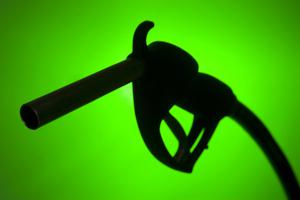More for your money: How to get the best gas mileage
You’ve seen the iconic monster pick-up blazing down the road, slamming the brakes at intersections and gunning the gas for green lights. Or maybe you drive a monster pick-up truck but don’t drive like a maniac. The car is only half the issue when it comes to reduced emissions and better gas mileage. The way you drive is the other half of the battle.

Watch your speed
The speed at which you drive affects your mpg. For example, driving over 60 mph can cause a 33 percent reduction in fuel economy. But that’s not the only trick to getting better mpg based on your speed. “Jackrabbit” driving – accelerating and decelerating quickly – causes your engine to burn fuel faster. Maybe you’ve gunned the engine before and seen how quickly the needle drops towards the dreaded “E.” Accelerate slowly and brake gradually to conserve momentum, fuel and control.
Cruise control, idling
In a society where drive-through services are the norm, people waste countless gallons of gas as they sit in their idling cars. Even if you get great gas mileage, you’re wasting fuel when your car idles. Try getting out of your car once in a while to run errands.
If you have cruise control, using it can increase fuel efficiency, because when your speed stays consistent, you burn less fuel.
Tune-up
Like any piece of machinery, your car’s engine will run more efficiently if it’s clean. So it’s important to have regular oil changes and tune-ups. A cleaner engine also emits fewer pollutants.
Using the proper octane level and oil type for your car can improve mpg drastically. Find out how much money you’ll save on gas by replacing the oil every 3,000 miles: the price for an oil change will be offset by the savings in gas money.
Don’t drive
If you live in a large city, you may be able to use public transportation to cut back on fuel expenses and reduce your environmental footprint. Biking and walking are by far the most environmentally friendly ways to get around town, but if you live in the suburbs, you may feel like you need to drive to get to your destination. Carpooling, combining errands with your work schedule and using a bus system can usually meet your transportation needs, no matter where you live. Using alternative methods of transportation can contribute to a more active lifestyle, save you money and reduce harmful effects on the planet, too.

